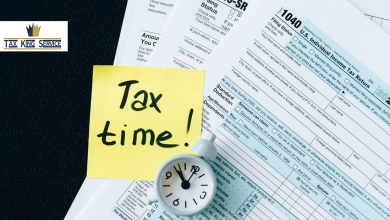Avail of the Benefits of Tax Saving FD in India

Banks and other financial institutions provide fixed deposit accounts as an investment option. Investors would deposit a considerable sum over a while into this account. In exchange, customers would get a fixed interest rate for the investment duration. The interest rate on FDs is substantially higher than the interest rate on a standard savings account. Investors can withdraw their funds after the deposit’s term. On the other hand, they can reinvest their money over a more extended period.
Fixed deposit accounts are available from all scheduled commercial banks and several NBFCs and HFCs in India. Check the ratings of the financial institution issued by organisations such as CRISIL before investing in FDs provided by an NBFC or HFC. It is to ensure that your funds are secure. Banks and other financial organisations in the private sector may charge a somewhat higher interest rate than public sector banks. In this article, we will be discussing the tax benefits you can avail of from FD. You can use an FD calculator online to assess the same.
Types of FDs on the Market
Fixed deposit accounts are divided into numerous types based on the account’s features, the type of account holder, and the reason for opening the account. We’ve mentioned a few different sorts of FD accounts below:
Regular Savings Account
Individuals under the age of 60 are eligible for a regular FD account. The interest rates on this type of FD account will be lower than those available to older citizens. Any Indian citizen can open this account.
Senior Citizens’ FD Account This account is for senior citizens or those over the age of 60. Such account holders receive a greater interest rate than usual and have access to the monthly interest payout option, which can be viewed as a way for senior citizens to cover their monthly needs.
FD Account for Corporations
Banks provide corporate clients with a unique set of interest rates and deposit terms. Firms can temporarily store excess funds or earnings in corporate FD accounts until they need the money.
Tax Saving FD Account: Many risk-averse people use tax-saving FD accounts with a five-year minimum lock-in period to save money on taxes. Section 80C of the Income Tax Act of 1961 allows for a tax deduction on such deposits. You can use an FD calculator to learn about tax savings.
NRO FD Account
Overseas Citizens of India (OCI), Persons of Indian Origin (PIO), and Non-Resident Indians can all create a Non-Resident Ordinary FD account (NRI). Any INR-based revenue can only be deposited in NRO FD accounts. This account can be opened jointly with an Indian resident if that person comes into one of the familial categories listed in Section 6 of the Companies Act, 1956.
NRE FD Account
Two or more NRIs can open a Non-Resident External (NRE) FD account. The account is a convenient method of converting foreign currency earned outside of India into Indian rupee values. This account’s principal and interest are both fully reimbursable. Section 10(4) of the Income Tax Act exempts interest income from this account from taxation.
NRIs can open an FCNR FD (Foreign Currency Non-Repatriable FD) account and deposit money earned abroad in India. US Dollars, Pounds Sterling, Euro, Japanese Yen, and other currencies are commonly accepted. You can keep your money in the same currency while generating significant returns with this account.
Monthly Payment FD Account
Every month, these FD accounts pay out accumulated interest. The accrued interest is not added to the principal, and the interest will not be compounded. You can have the interest component deposited into your savings account monthly and use the money for whatever you like.
Maturity-Payable FD Account
In this situation, interest accumulates in the FD account over the deposit term, is compounded, and you are paid the principal plus interest components when the FD account matures.
Tax Savings on FD
When you invest in a tax-saver FD scheme with a minimum lock-in term of five years, you can claim a tax deduction of up to Rs.1.5 lakh under Section 80C. You can use an FD interest calculator to calculate this.
By investing up to Rs.1.5 lakh in a tax-saver fixed deposit account, you can take advantage of the income tax deduction provision under Section 80C of the Income Tax Act. The plan guarantees both returns and capital protection. However, you should know that the account’s interest income is entirely taxable. The amount of tax you owe is wholly determined by your overall income for the fiscal year and the tax bracket you fall into.
Interest income is classified as ‘Income from Other Sources.’ In addition, if the interest earned in a financial year exceeds Rs.40,000 across all accounts held with the bank, the bank deducts tax at the source. The financial institution provides a TDS certificate to confirm the tax deduction details, a TDS. To learn more about the taxation of FD returns, click here.




